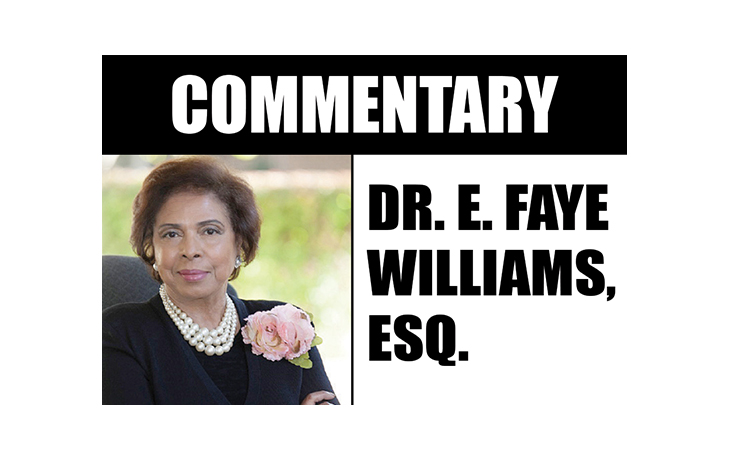Recording memories and ideas for a memorial service can help you craft your own legacy. Lauren Mulligan/Moment via Getty Images
by Dr. E. Faye Williams
During the past week, I had the opportunity to attend and speak for a conference held by the African American Leadership Council Summit: A Journey Home. Ms. Brandi Alexander serves as Chief Engagement Officer. The conference was about end-of-life choices and many shared their experiences on this subject.
In my case, I talked about our family’s experience with my mom who made her transition in 2021. Before leaving us, she wrote a message to us stating that we should not worry about her because she’d had a good life. She had shared with us her desire to live in her home rather than go to a healthcare facility while still with us. We honored her wish by having a healthcare worker come in during the day, and my sisters and I divided our time with her.
Individually we came to my mom’s place to be with her every day from California, Washington (DC), and Houston and we had a sister who lived near my mom, but there was always a family member with her to the end. My mom left advice for us in terms of her burial choices and how to pay for her service. Upon her transition, we did not deviate from her desires.
While it’s always difficult having a loved one make their transition, because our mom had nearly all her desires in writing, the process was easier for us.

I listened to the challenges some families had when there was no end-of-life plan for their loved ones. Many participants were professionals who worked with people who either had or did not have end-of-life choices in writing. They found that often there were family feuds once the loved one made their transition without a plan. Some had to do Go Fund Me operations that often had the effect of holding up burials until the funds could be raised. Some had arguments about cremation vs. traditional burials. This called attention to the need for cultural traditions to be recognized. While cremation is not yet popular among people of African descent, interest appears to be growing. There are other traditions/desires that should be included in a person’s end-of-life directives.
Among the speakers were Bishop Vashti M. McKenzie who did a master class about end-of-life choices. She told us about her mom’s plan that made everything easier for her family. If you’ve never heard her speak on this subject, you should invite her to do so at your next conference or convention.
Dr. Julianne Malveaux shared her family’s end-of-life story with her mom. Rev. Kevin Taylor, Pastor of Unity Fellowship Church of Newark, shared his story of personally performing the service for his mom and how challenging that was, but he knew it was his mom’s desire. Dr. Rosalyn M. Satchel of the Berkman Klein Center at the Harvard Law School shared her experiences working on the issue of early and unexpected death among her students.
There were many experts who shared with us how end-of-life choices are made and how they help those of us left behind to carry out the wishes of the deceased. Ms. Kim Callinan, President and CEO of Compassion and Choices provided an overview of the importance of the organization’s work.
Dr. Elisha Hall, African American Engagement Director of C&C, and Ms. Brandi Alexander Chief Engagement Officer of C&C; Shawn Perry, Executive Producer and Host of The Senior Zone; Dr. Beverly M. Morgan, of the Black Nurses Association and Ricardo Thomas offered valuable economic information. I wish I could name everybody who participated, but I’m limited with words!
The best advice I can offer is to go to the website to learn more about why you should put your end-of-life choices in writing ASAP!
(Dr. E. Faye Williams, President of The Dick Gregory Society. and United Nations Peace Ambassador.)